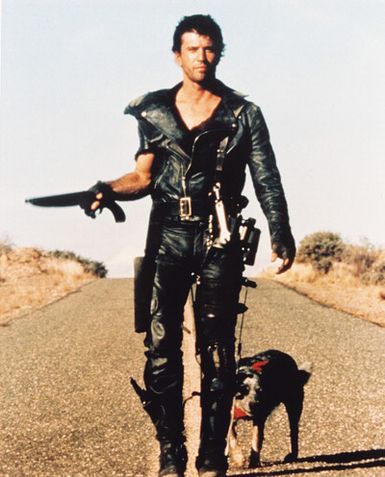
Except that according to the folks at the Sydney Morning Herald, we’re all headed for a new kind of horror – cybergeddon, the digital mushroom cloud.
Is it just me, or do these nice people all seem to have a complete freakin’ fetish for the prefix Cyber?
In trying to make a point, these people all come off as rather pathetic characters out to scare people… or unaware that they sound like movie characters gone awry. Take for instance Mr. Brett Peppler, a former intelligence officer who undertakes research for the Australian Homeland Security Research Centre who said:
There’s no jurisdiction in cyberspace. There’s no accountability … no rules. And it’s grown explosively, not in a planned way.
Sounds a little too much like Shaggy, ahhhh… Cereal Killer in Hackers (shut up, I know you’ve all seen it) exclaiming:
FYI man, alright. You could sit at home, and do like absolutely nothing, and your name goes through like 17 computers a day. 1984? Yeah right, man. That’s a typo. Orwell is here now. He’s livin’ large. We have no names, man. No names. We are nameless!
And at the end of the day – it’s just a movie – if there’s gonna be a firesale, wouldn’t it have happened already? Aren’t the hackers addicted to critical infrastructure (telcom, power, ummm… twinkies and jolt shipments)? Aren’t the really bad nation-state types (well the ones to worry about anyways – yes China, probably not Yemen) really addicted to critical infrastructure (Walmart, containerized shipping, MacMansions with ARM mortgages)??
I guess as I go back and evaluate the time that I’ve spent working on Critical Infrastructure security (what a freakin’ mess), did I spend that time well, or not? Will the next war be fought in the spaces between computers or on a field with hot metal? I grew up when the cold war looked a little tepid, I’m accustomed to real bad guys — to Krushchev wanting to bury us — a nuke targeted at every city. What kind of pansy-ass bad guy construct is the industrial military complex trying to create for our consumption?
Where’s the facts and the journalism?
[tags]rants, cyberdouchery, tuesday[/tags]




Indeed.
“Cyber” this.
It sucks, but I have to use the term “cybersecurity” when dealing with management – even IT management – as the term “clicks” with them. They get that cybersecurity means things that need to be done to keep “hackers” off the “gizmos”. For better or worse, they’ve been conditioned to equate the threat to Neo, Crash Override, Stanley Jobson, Johnny Mnemonic, David Levinson, etc.
To them, the bad guy is a greasy PFY or a magician. When I talk to them about insiders or financially/politically motivated adversaries being our primary threat, I generally include a PFY or magician in the bad guy’s team. It helps them connect the dots.
“Firesales” and “Cybergeddon” aside, the elements are present to create significant disruption to a region. Tweak the street lights (a la Los Angeles in August 2007 and possibly Vancouver, BC in September 2007), disrupt access to power generation sources (a la Juneau, AK last week – force of nature but same impact if you detonate TNT on the slope), blow a bridge (get there the same way protesters got onto the Golden Gate bridge while the Olympic torch and RSA was in town), turn a hydro plant into a water hammer via valve slapping (a la Oigawa, Bartlett, Oneida Station), and perhaps a little backflow here and there.
There are many high-tech, low-tech, and no-tech ways to impact infrastructure. Most of these impacts can be realized by a single actor, with multiple events requiring multiple coordinated actors.
Will an adversary carry out an attack on a region/city that employs multiple vectors like above? Possibly, but probably not in the near future. Do we stick our head in the sand because it probably won’t happen in the foreseeable budget/election cycles? That leaves a rather vulnerable part of one’s anatomy left exposed with which to communicate risk or respond to threats…
Love the post tag, btw…